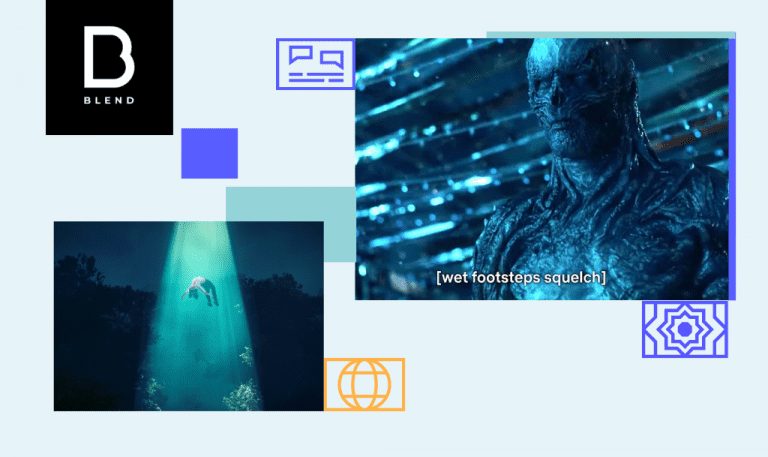Corinne Sharabi
Corinne is the Social Media and Content Lead at BLEND. She is dedicated to keeping global business professionals up to date on all things localization, translation, language and culture.


The use of words like “squelch” and “wetly” in the subtitles of Netflix’s Stranger Things season 4 has caught the attention of viewers around the world – and rightly so. According to Netflix’s director of globalization, Kathy Rokni, Netflix has implemented a new style guide for their subtitles with the aim of giving deaf and hard-of-hearing viewers an equally immersive viewing experience. And oh, what a difference a style guide can make!
In fact, in the latest season of Stranger Things, a different audience has taken note of Netflix’s descriptive closed-captions: Gen-Z. According to a 2021 survey by the captioning charity Stagetext, four out of five viewers aged 18-25 years old use subtitles all or part of the time (even if they don’t have hearing problems).
Closed-captions, such as “[Tentacles undulating moistly]” and “[wet footsteps squelch],” have inspired memes across the internet – and people love them.

Why are these subtitles and captions so effective? Because not only are they incredibly descriptive, but they also take their audience and context into account.
In an interview with Vulture, the Stranger Things subtitle author Jeff T. explains, “I try to stick to genre-appropriate language as well. People brought up the squelching, but that palpable pressing sound is meant to evoke disgust and horror. If I was doing a Regency-era picture or a stoner comedy, I’d change my language and shift accordingly, but I tried to be respectful of the genre [in Stranger Things season four].”
Subtitling and captioning are important forms of communication that have major effects on how an audience experiences media. It’s safe to say that the team behind Stranger Things season 4 kept their audience, context, and purpose at the top of their minds. Mapping out all of these considerations in a project brief is important for focused, effective results. Beyond a brief, creating a style guide that establishes tone of voice, dos and don’ts, and a glossary of terms will give writers and translators the direction they need for consistency and success in every language.
Once subtitles are written, they’ll likely need to be translated for multilingual audiences. Planning, organizing, and executing subtitle translations can get tense if you’re not working with the right tools and people.
[tense music intensifies]
Working with a reliable localization partner for your subtitle translations can lift a lot of stress from your shoulders as a project manager. BLEND’s all-in-one platform supports the entire localization journey, from connecting you to top translator talent, building your team, managing your projects, and scaling with you.
[resolved synth music]
Contact us to learn more about BLEND’s subtitle translation services, dubbing, and voice-over services.
What our customers are saying